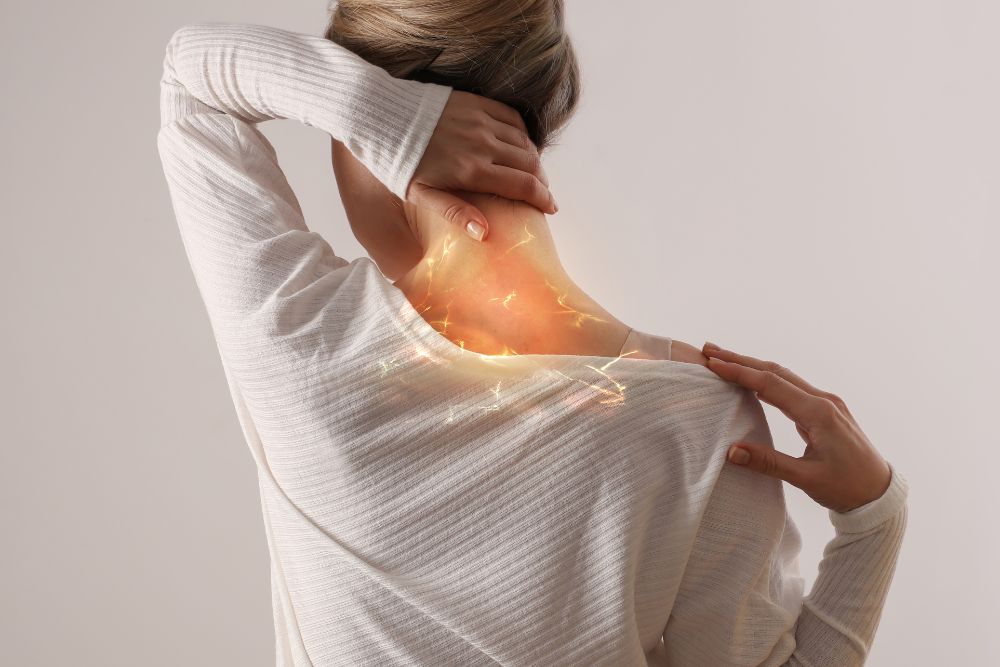Car accidents can lead to a range of injuries, some of which are not obvious immediately following the accident.
While the aftermath of a car accident may not reveal the full extent of injuries, understanding the potential for delayed symptoms is crucial for healing and recovery.
These hidden injuries can manifest over time, emphasizing the need for medical attention, such as physiotherapy for MVAs.
Let’s look at what some of these delayed injuries are and the best course of treatment to ensure the necessary support for a complete and effective recovery:
Symptoms of Delayed Injury Post Car Accident
It’s important to know if you have a delayed injury after a car accident by recognizing the symptoms of these injuries. This will help you address them quickly to avoid long-term complications.
Here are some common symptoms of delayed injuries:
Headaches
Delayed headaches following a car accident can be caused by a variety of things, including muscle tension, whiplash, or even an underlying concussion.
Without proper intervention, persistent headaches can get worse and affect concentration, work performance, and overall well-being.
If issues like whiplash or concussion are left untreated, they can lead to prolonged issues such as dizziness, cognitive difficulties, and sleep issues.
Physiotherapy can be used to treat headaches following an MVA by offering targeted exercises and techniques to alleviate tension and relieve headaches.
Addressing the root cause of these headaches through physiotherapy can help prevent them from becoming chronic issues that disrupt everyday life.
Shoulder and Neck Pain
The delayed onset of shoulder and neck pain usually stems from soft tissue injuries caused by the car accident.
Ignoring these symptoms can lead to chronic pain, restricted range of motion, and a decreased quality of life.
Early physiotherapy interventions can help relieve pain and prevent long-term musculoskeletal issues.
Physiotherapy focuses on exercises that strengthen muscles, improve posture, and increase flexibility – all of which contribute to a comprehensive healing process.
Back Pain
Back pain post-car accident can be caused by muscle strain, ligament damage, or even herniated discs.
Without proper rehabilitation and treatment, back pain can become chronic and impact daily activities and overall mobility.
Physiotherapy for MVAs aims to address these issues through targeted exercises, stretches, and manual therapy.
Core-strengthening exercises and postural adjustments are important parts of a physiotherapy treatment plan for back pain.
Numbness
Numbness or tingling sensations after a car accident may indicate nerve compression or damage.
Ignoring these symptoms may lead to prolonged nerve issues that can affect sensation and motor function.
Timely physiotherapy treatments can help with numbness and restore normal nerve function.
This type of therapy uses techniques that release pinched nerves, such as nerve gliding exercises and manual therapy.
Abdominal Pain
Abdominal pain following a car accident can be a serious sign of internal injuries and must be addressed by a medical professional immediately.
Assessing potential injuries early on is crucial for preventing severe complications.
When it comes to abdominal pain, physiotherapy can play an important part in rehabilitation, but seeking immediate medical attention from a professional like the nurse practitioners at River Stone NP Clinic is a must.
PTSD
A car accident can be an extremely traumatic event. Delayed-onset PTSD (post-traumatic stress disorder) symptoms may include flashbacks, nightmares, and heightened anxiety.
Without proper intervention, PTSD symptoms can significantly impact mental health and daily functioning.
Seeking professional help from a physician or nurse practitioner is vital for a comprehensive assessment and tailored treatment plan. They can offer the support needed to address and manage PTSD symptoms effectively.
Behavioral Changes
Behavioral changes, such as increased irritability or avoidance behaviors, may indicate the psychological impact of a car accident. It can also indicate traumatic brain injury.
Untreated behavioral changes can affect relationships, work, and overall quality of life.
Doctors and nurse practitioners can assess the behavior changes and provide appropriate care. Education and counseling may be incorporated into the treatment plan to assist individuals in understanding and managing behavioral changes.
Treat, Don’t Ignore
In the aftermath of a car accident, taking quick action is crucial!
Seeking medical attention and booking a physiotherapy session can be the first steps toward preventing future complications from delayed injuries after a car accident.
Addressing these injuries early on helps to create a smoother recovery process.
Book Your First Physiotherapy Session Here!
For a comprehensive approach to car accident recovery, book your first physiotherapy appointment with River Stone Wellness.
Our experienced professionals are dedicated to providing tailored care to address delayed injuries after a car accident. We are here to support your journey to optimal health.
With a focus on personalized treatment plans, our physiotherapists work with you to address your unique needs and promote a quick and effective recovery.


